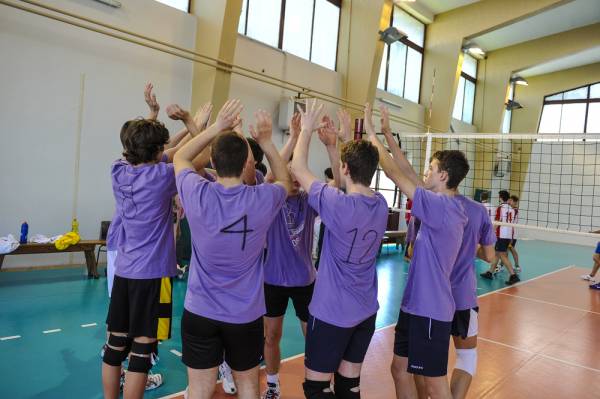What can reveal the most about an athlete in a matter of minutes, can make or break the outcome of a game or a competitive event, and can reach viral status within seconds? That’s right. Attitude. Good, bad, or indifferent, we all have it.
Dr. Jim Taylor, an authority on the psychology of performance in sports, describes two essential areas of attitude in sports performance:
- The athlete’s attitude toward competition
- The athlete’s attitude toward winning and losing
The Athlete’s Attitude Toward Competition
Beginning with Dr. Taylor’s first area of attitude in sports performance, the athlete must recognize and then establish his or her attitude toward competition. Does the athlete see competition as a chance to grow in the sport, to test personal physical and mental boundaries and abilities, and to test leadership and decision making skills?
Accompanying the athlete’s personal recognition of his or her healthy attitude toward competition, it is the responsibility of coaches and trainers to help establish and foster this beneficial attitude in the athlete. By supporting the athlete’s attitude toward competition, the coaches and trainers are assisting in the development and progression of the athlete’s performance, as well as assisting in the personal development of the athlete.
Conversely, does the athlete dread competition for fear of personal failure? Does the athlete see competition as nothing more than a win-or-lose situation? Again, establishment and recognition of the athlete’s attitude toward competition is essential in developing the athlete’s personal and athletic potential.

The Athlete’s Attitude Toward Winning and Losing
Dr. Taylor describes the second area of attitude in sports performance as the athlete’s ability to recognize and establish an attitude toward winning and losing. This attitude goes further than, and is more complicated than, a simple “W” or “L” in the books.
This sports attitude further develops into a personal and life definition of winning and losing. Does the athlete recognize that, win or lose, sports lessons and life lessons can be learned, and furthermore, that those lessons can be applied to the next game or competition, or even to the athlete’s life?
While athletes, coaches, and trainers want to win, a loss can result in renewed determination, greater focus on skill sets, and a chance to learn from mistakes or errors made in the event or competition. Recognizing the lessons gleaned from either a “W” or an “L” in a competition can make the athlete a stronger competitor.
Make It or Break It
Building upon the aspect of recognizing and establishing a good mental attitude toward competition, as well as establishing an attitude toward winning or losing, we know that attitude can make or break any athlete or any team. The athlete’s ability to control his or her mind in a positive way is critical to overcoming negative thoughts or difficult situations.
This is especially true of games or competitions where spectators heckle or interact with the players. This baseball player had a great attitude toward his heckler:
While this video is specific to a professional athlete, youth athletes must also learn and practice the skills of a strong mental attitude. The athlete must be strong enough to overcome the stresses of performing in a challenging environment or to a hostile crowd. How the athlete responds to and works through challenging situations is controlled by the athlete’s mental approach to the competition. The mindset of the athlete toward competition and winning or losing defines and reveals the athlete’s mental attitude.
Attitude Is Viral
A positive sports attitude is essential to the success of the athlete, both on and off the playing field, but it is easier said than done. During competition, it is easy to get mad about a bad play or a bad call, and it is easy to point fingers and assign blame. If that frustrated attitude and emotional state are allowed to prevail with one athlete, then that attitude will quickly become the accepted norm for the team.
The good news is that a good attitude is just as contagious as a bad attitude. What many athletes do not realize, though, is that a positive attitude is a personal choice, made every day, whether at practice or in a competition. There are several practices that may help develop a positive winning sports attitude in youth athletes:
- Every day, make the personal decision to be positive – at home, at practice, at games or competitions.
- Know yourself. Know your strengths and weaknesses and work on your weaknesses until they become strengths.
- Believe in yourself, in your abilities, and in your training.
- Commit. Commit to your sport(s), to your practices, to your games, to your team, and to your coaches.
- Focus and resolve. Focus on your goals and determine to achieve them.

In a sports competition, athletes have a limited time to reveal who they are, a limited time to win or lose a game, and a limited time to demonstrate their positive sports performance. But what is always revealed, no matter the duration of the sporting event, is the athlete’s attitude. Does your athlete’s attitude reveal that his or her athletic ability is limited or does your athlete’s attitude reveal that his or her athletic ability is limitless?
1. Taylor, J. “Slumpbusting: Overcoming Performance Slumps in Competitive Sports“, Dr. Jim Taylor. Accessed June 30, 2014.
2. Keep Busy.”Baseball Player Deals with Hecklers.”Accessed June 30, 2014.
3. Sun-Tzu.,The Art of War. Translated by Ralph D. Sawyer. Metrobooks. New York. 2001.
Photos courtesy ofShutterstock.






